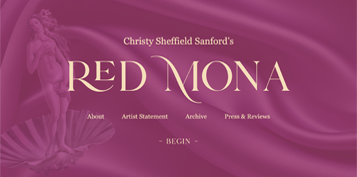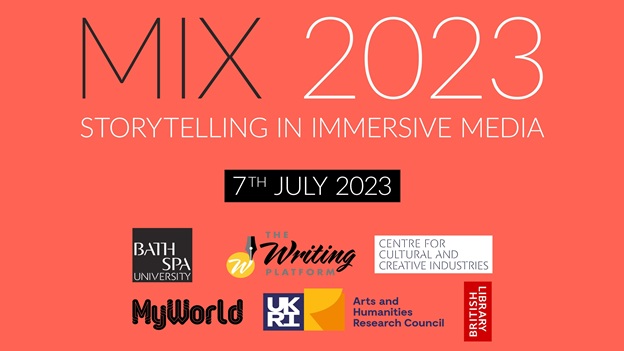Reconstructing & Restoring Christy Sheffield Sanford’s Red Mona

The lab finished the work to reconstruct Christy Sheffield Sanford’s work of net art, Red Mona, and restore the original website that presented it. This activity marks the first time we have done both activities to a single work of digital art to preserve it. Red Mona is a narrative based on Guy de Maupassant’s short […]
Restoring Sanford’s “Red Mona”
The Electronic Literature Lab is restoring Christy Sheffield Sanford’s “Red Mona,” a work of net art that unfolds over the course of 42 “flash-cards” containing text, images, and sound. Based on Guy de Maupassant’s story, Petit Soldat, it was exhibited in 1997 at the “Maid in Cyberspace XX” exhibition held in Montreal. Much information can be […]
James Lesperance Selected for a WSU Vancouver Undergraduate Research Fellows Award
Lesperance’s project, “Programming a Method for Documenting NetProv” funded by the award, will result in a custom data visualization for Rob Wittig’s seminal NetProv Grace, Wit, & Charm (2011) that will serve as a proof-of-concept for documenting many other NetProv works by the author and others involved in the art form. Grace, Wit, & Charm […]
Experiments with the Quest 3 and Apple Vision Pro
“The Future of Text in XR” project is underway, just a month after our kick off, with the arrival of our headsets. While our project is not limited to one specific VR product, we are interested in the Apple Vision Pro as a harbinger of what is to come with the other headsets in an […]
Happy 40th Birthday, Macintosh!
by Dene Grigar, Director, Electronic Literature Lab What? An exhibition of Apple products from 1984-present in celebration of Macintosh’s 40th anniversary Where? Washington State University Vancouver, second floor of the VMMC next to room 211A Who? The Electronic Literature Lab More info? Contact Dene Grigar, dgrigar@wsu.edu On January 24, 1984 the Apple Corporation released the […]
The Future of Text in XR

Frode Hegland & I learned last week that our project, “The Future of Text in XR,” was funded by the Alfred P. Sloan Foundation. Here is the link to the Future of Text website with detailed information about our work, including videos and prototypes. Abstract We believe a fundamental change will occur when […]
Announcing Deena Larsen, ELL’s Artist in Residence

Hypertext & Art: A Retrospective of Forms
What you are looking at is Sierra O’Neal’s 3D model of Lorenzo Miglioli’s 1993 RA-DIO, the first published Italian hypertext and the first in Italy created on the Storyspace platform. As you can see, RA-DIO consists of a print book and two 3.5-inch floppy disks packaged in a plastic sleeve. The floppy disks, formatted […]
MIX 2023

We are preparing for “MIX 2023: Storytelling in Immersive Media,” taking place at the British Library on July 7, 2023. Dene is representing the lab on the panel entitled “Unlocking the Digital Archive: Archiving, Preservation, and Enhanced Curation,” otherwise known as Panel 4. She is both Chairing the panel and giving a presentation about the […]
In honor of Helen Thorington
Helen Thorington, founder of the influential Turbulence.org (1996-2016), died on April 13, 2023 after a long illness. The lab is grateful for her passion and vision to showcase born-digital art and nurture artists, so many of whom built their careers through their association with Turbulence.org. For us in ELL, it has been a joy to […]
